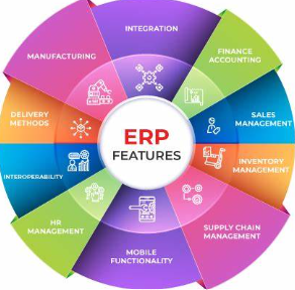Enterprise Software Development

Enterprise Software Development
Definition:
Enterprise software development involves the creation of custom software solutions tailored to the specific needs and requirements of large organizations or enterprises. These solutions are designed to streamline business processes, improve efficiency, and support the overall operations of the organization.
Key Components:
Requirements Analysis:
Understanding the unique needs, challenges, and objectives of the enterprise through thorough analysis and consultation with stakeholders.
Architecture Design:
Designing the overall structure and framework of the software solution, including the selection of appropriate technologies, platforms, and development methodologies.
Development:
Writing, coding, and building the software application according to the defined specifications and design requirements, often using programming languages like Java, C#, or Python.
Integration:
Integrating the enterprise software with existing systems, databases, and third-party applications to ensure seamless data flow and interoperability.
Testing and Quality Assurance:
Conducting comprehensive testing, including unit testing, integration testing, and user acceptance testing, to ensure the reliability, functionality, and performance of the software.
Deployment and Maintenance:
Deploying the software solution to production environments and providing ongoing support, maintenance, and updates to address issues, add new features, and ensure continued performance.
Benefits:
Customization:
Enterprise software solutions can be customized to meet the specific needs and workflows of the organization, providing tailored solutions that address unique challenges.
Efficiency:
By automating manual processes, improving collaboration, and streamlining workflows, enterprise software helps organizations operate more efficiently and effectively.
Scalability:
Enterprise software solutions are designed to scale with the growth of the organization, accommodating increasing user bases, data volumes, and business demands.
Integration:
Integration capabilities allow enterprise software to connect with existing systems, databases, and applications, enabling seamless data exchange and workflow integration.
Data Security:
Enterprise software solutions prioritize data security and compliance with industry regulations, implementing robust security measures to protect sensitive information and ensure regulatory compliance.
Business Insights:
Enterprise software often includes reporting and analytics features that provide valuable insights into business performance, enabling informed decision-making and strategic planning.
 NeoM Communications
NeoM Communications